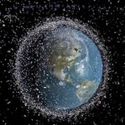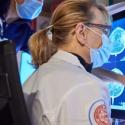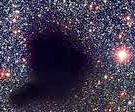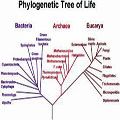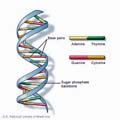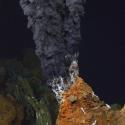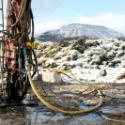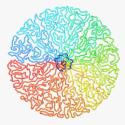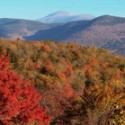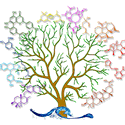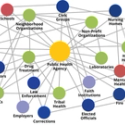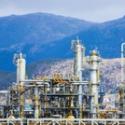Science Is Essential
Science touches so many aspects of modern life that it's hard to keep up. Through our programs and this website, Science for the Public provides up-to-date information about scientific innovations, discoveries, and issues that are shaping modern knowledge.
Coming Events
Space Debris Alert!: The Potential Impact on the Ozone Layer and Earth’s Climate
Thousands of satellites orbit Earth. At the end of their missions, they drop into and burn up in the stratosphere, depositing ash that contains oxides and pollutants that are affecting both the ozone layer and the planet's climate. Atmospheric scientists are working to analyze the aerosols and their worrisome impact. Daniel Cziczo
Recent Events
Cancer Research: How It Works and Why It's Crucial Today
04/08/25 Numerous types of cancer are increasing today and scientists are trying to identify the causes. That's why cancer research is one of the most important concerns of modern science. We learn how the research is done and also why federal funding for this work is essential. Gerald Denis
Addressing the Global Water Shortage
03/11/25 Due mainly to climate change and wasteful agricultural practices, the supply of freshwater is rapidly diminishing across the globe. To provide water for the world’s huge population, governments must quickly develop advanced conservation and sustainability policies. Jay Famiglietti
Is Earth Exceptional?
02/18/25 Is there life beyond Earth? So far, despite the discovery that there are billions of planets in our galaxy, and our increasingly sophisticated probes for life, we still don’t know. Life and the conditions for its emergence are both very complex phenomena. Mario Livio
Resistance to New Ideas
Many of the most important advances in scientific understanding were initially rejected or ignored.
Life: Defining Life
The fine line between animate and inanimate, and between quasi-life and life. ....
Featured Items
The Battle for the Future of Food
06/11/24 WGBH Forum Network webinar. Industrial agriculture (“Big Ag”) is a major contributor to global warming, environmental destruction, and disruption of good farming traditions. There is a better way to feed the world without destroying the planet. Tim Wise
Carbon Capture and Storage Will Not Reduce Global Warming
02/09/24 GBH Forum Network webinar (noon ET) The extreme level of atmospheric CO2 is well beyond a “capture and storage/sequestration” solution, yet the hype persists that some clever extraction innovation will resolve the problem. Charles Harvey
Heads Up! Surprising Stats
Science for the Public is committed to improving public knowledge of science and public appreciation for the contributions of science to social progress.

Elusive Dark Matter and the Earliest Galaxies
10/23/24 The James Webb Space Telescope (JWST) and other advanced technologies are providing unprecedented data about the early universe. Astronomers are developing a new understanding of how the earliest stars and galaxies emerged. Julian Muñoz

The Jurassic Genome
12/09/09 Genetic material in ancient fossils yields an amazing profile of extinct organisms. Chris Organ

The War on Science: What We Need to Do
11/27/18 The anti-science mentality and policies threaten public health, environment, and safety --and also our progress in many scientific fields. What we need to do. Andrew Rosenberg
Today's Featured Contributors
As a world society, it seems clear that we have arrived at a point in our history when there must be a major increase in the capability of ordinary people to cope with the scientific and technological culture that is shaping their lives and the lives of their children.
—Leon Lederman, Nobel Laureate in physics

